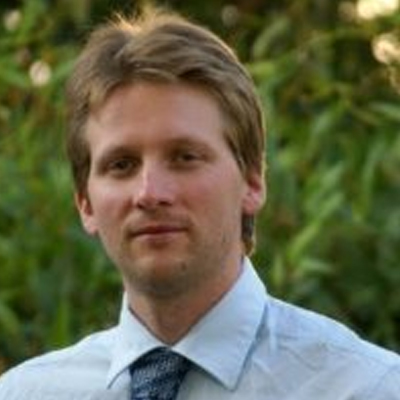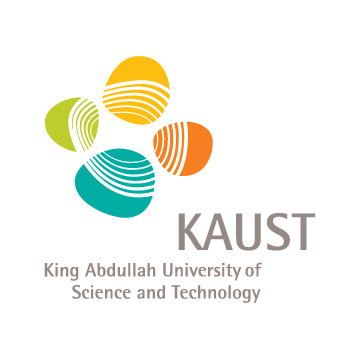Easing road congestion and monitoring severe weather conditions with budget-friendly mobile solutions
Dr. Christian Claudel wants to build systems that will have an immediate impact on society. As a systems engineer at King Abdullah University of Science and Technology in Saudi Arabia, he has pinpointed two societal issues to tackle - traffic congestion and flash flood monitoring.
Traffic congestion is a problem in most areas of the world, and traffic control is one of the most promising ways of addressing traffic congestion, since it does not require building additional roads. However, traffic control requires accurate traffic flow maps, and precise demand forecasts on the road network. The new traffic sensing systems Dr. Claudel is developing could feed input data to traffic control systems such as smart traffic lights, ramp metering or variable speed limit control, thereby creating better traffic flow and safer driving conditions.
With respect to flash floods, currently available systems simply cannot efficiently monitor these events. Fixed sensor networks are too expensive to deploy over large areas and maintain. Satellite-based systems, such as synthetic aperture radars, lack the resolution to monitor floods. By using UAV-based systems (unmanned aerial vehicles) or drones with Lagrangian microsensors, Dr. Claudel sees possible sensing solutions that are economically viable, and can be available on-demand, over extended areas.
- Dr. Claudel's general area of expertise is Lagrangian sensing systems, that is, mobile systems, applied to distributed parameter systems monitoring. His objective is to build Lagrangian sensor systems for monitoring physical phenomena at a large scale.
- Uniquely, Dr. Claudel's vision would be to realize the "smartdust" vision of Chris Pister et al. (early 2000s), which has not been implemented to date for the proposed applications - traffic and flash floods. Unlike most existing systems which rely on a small number of expensive sensors, he wants to rely instead on very large numbers of cheap sensors.
- He proposes a new type of traffic sensing system based on a combination of wireless sensor networks and low-cost mobile sensors onboard vehicles. The future of traffic sensing is pro data, in other words the drivers create the data. Unlike current GPS systems which are sent over mobile phones and affect the driver's privacy, his system uses short range communications. His measurements do not give away user information, locations, etc., instead the information is processed through a network and traffic maps are produced by the sensor network itself, creating a more efficient system where the data is useable by everyone.
- Dr. Claudel has built low-cost sensor prototypes that would be installed in all new cars and retrofitted to older cars. These will be connected to the network, work directly with traffic maps, and monitor road flow.
- To monitor flash floods, Dr. Claudel proposes using UAVs to monitor, track and identify the severity of possible flash floods. These drones would track the conditions, estimate the flooding potential and like a weather forecast system predict future expectations. They will also provide more accurate communications to people living in flash flood danger zones, enabling them to prepare for minor disruptions or catastrophic disasters.
- Unlike current flood preparations monitors, Dr. Claudel's system will provide more accurate prediction tools to predict the severity of expected floods.
Traffic congestion is due to a lack of infrastructure. To solve the problem cities must build bigger roads; change the supply and demand of the roads, or manipulate traffic control. Traffic control is the easiest solution but traffic control needs accurate data. By creating a network of data with dedicated systems in place, a new, reliable infrastructure will emerge resulting in safer roadways.
In 2009, flash floods caused a catastrophic disaster to the city of Jeddah in Saudi Arabia killing hundreds and destroying the city. It was considered the worst flood in 27 years and took most of the city by surprise because there were no communications in effect to make the city aware of the impending disaster. Dr. Claudel's UAVs will be able to track conditions and provide accurate information to city officials and residents giving them time to prepare.
Bio
Dr. Christian Claudel is an assistant professor of Electrical Engineering and Mechanical engineering at KAUST. He received the Ph.D. degree in EECS from University of California, Berkeley in 2010, and an MS degree in Plasma Physics from Ecole Normale Superieure de Lyon, France in 2004. He received the Leon Chua Award from University of California, Berkeley in 2010 for his work on Mobile Millennium. His research interests include control and estimation of distributed parameter systems, cyberphysical systems monitoring, and the use of wireless sensor networks and environmental sensing systems.
Dr. Claudel has always wanted to develop systems that can have an immediate impact on society, that is, bridge the gap between academia and industry. This was his main motivation to join University of California, Berkeley, where his Ph.D. research activities were applied to systems engineering. The objective of systems engineering is to build new systems that can immediately address fundamental societal needs by using the most recent, unproven technology.
Dr. Claudel's activities were part of CITRIS, the Center for Information Technology Research in the Interest of Society. At CITRIS, he discovered that there are countless areas in which systems could be built with off-the-shelf components to address major societal problems, most notably in non-industrialized countries. This motivated Dr. Claudel to become a researcher in systems engineering. He wants to find a way to address fundamental problems by integrating existing subsystems together.
Dr. Claudel's lab can be found online at: http://dss.kaust.edu.sa/Pages/Claudel.aspx
Pending Patents Include:
- C. Claudel, K. Salama, V. Calo, M. Ghommem, A. Elshurafa, M. Shaqura, Method and sensors for estimating and predicting air around air vehicles" (2013), application number 61/762,102
- C. Claudel, E. Canepa, A. Dehwah, J. Jiang, M. Mousa and A. Shamim (2012), System and method for monitoring trac, while preserving user privacy", application number PCT/US2013/055144, GCC 2013/25165
- C. Claudel, M. Farouqi, A. Shamim, Lagrangian microsensors for use with ood sensor networks" (2012), application number 61/825,410
- C. Claudel, Apartus, system and methods for roadway monitoring" (2012), application number US/utility13/552,341, PCT/IB2012/001768


